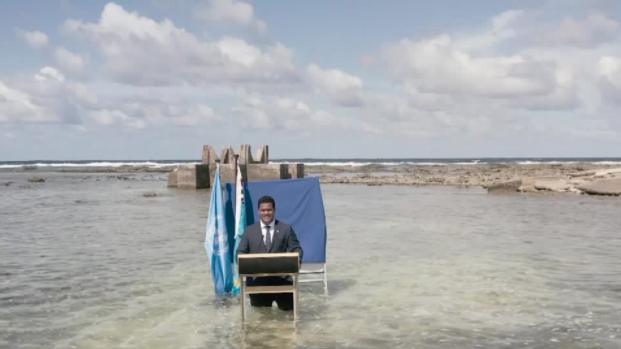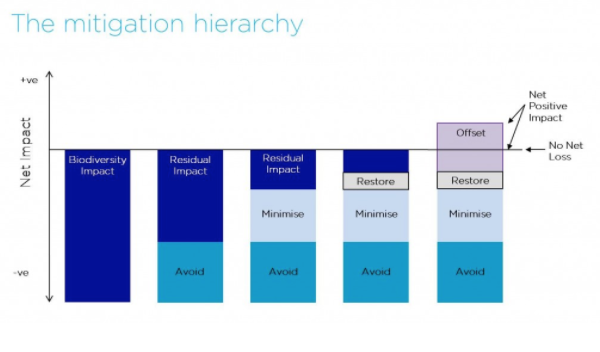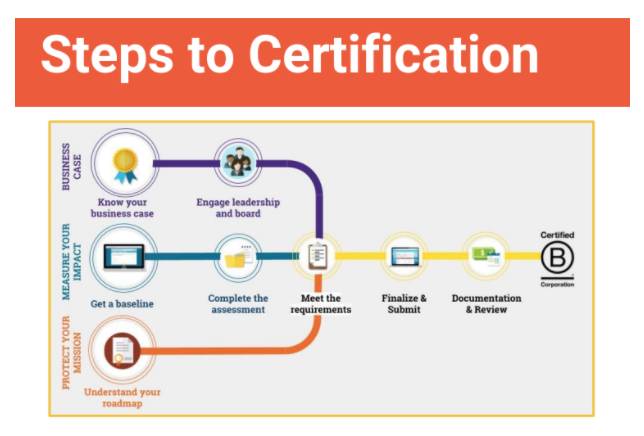How And Why Businesses Can Drive Environmental Change
11.11.21
By subscribing to our newsletter, you give us permission to email you with news of our work and events, plus opportunities for volunteering, challenges to take part in and special offers in our shop. You can unsubscribe any time by clicking the link in our email footer.

11.11.21

Business can play a huge role here. They have the ear of a large customer base, so they’re able to raise awareness and support people in making more sustainable choices. They can also have a huge influence on their supply chains. And importantly, they operate in a policy environment, so demanding positive change from governments will be critical.
Mark Wright from WWF from a recent article.
At Frank Water, we’re concerned about the health of our planet and for the people who inhabit it. Our primary focus is on water and part of this concern is around how businesses use this vital resource. Water is a basic need for every human being, living creature, and ecology as a whole.
Here are some really shocking statistics about the global WASH (Water, Sanitation & Hygiene) crisis:
These aren’t just numbers, these are real people, real children, in hundreds of thousands, in millions.
Affordable and sustainable access to WASH (the focus of the first two targets of Sustainable Development Goal (SDG) 6) is not only a key public health issue within international development but is also crucial to the fight against climate change.
Frank Water works with communities, NGOs and governments to improve access to WASH services. Together, we support individuals to understand supply and demand, and take ownership of their water resources. With increased knowledge, people are better equipped to conserve and replenish their water supply, ensuring sustainability in the long term.
According to UNIDO (United Nations Industrial Development Organisation), “the global sustainable water supply is estimated to be 4,200 km3 per year. In 2000, global water use stood at 3,950 km3. For 2030, global water demand is projected to be 6,900 km3, exceeding the sustainable supply by 40 per cent.”
UNIDO continues by stating that under a business as usual scenario, the Organisation for Economic Co-operation and Development (OECD) forecasts that global water demand for manufacturing industries will increase by 400 per cent from 2000 to 2050.
To achieve Inclusive and Sustainable Industrial Development (ISID), water use efficiency has to drastically increase. In other words, water consumption as well as water pollution per unit of industrial output both must be significantly reduced. This requires collaborative efforts by all water users, and it means that industries have a chance to play a catalytic role.
UNIDO
Consumerism has become a necessary by-product of living modern lives. But its negative effects include the depletion of earth’s natural resources and large-scale pollution of our air, water, land and much more. Our current consumer habits are not sustainable. We are currently overusing Earth’s natural resources by more than 70 percent. If everyone on earth lived like the average American, we would need 5.2 planets to support us. This goes down to 3 if everyone lived like the average Japanese person and about 3.3 as Europeans.
Do you know that typically, it takes around 3781 litres of water to make a single pair of jeans? This is equivalent to the amount of water the average person drinks in seven years. That’s just one of the many startling facts to emerge from recent environmental research, which show that the cost of staying fashionable is a lot more than just the price tag.
According to UNCTAD (UN Conference on Trade and Development), approximately 93 billion cubic metres of water – enough to meet the needs of five million people – is used by the fashion industry every year, with around half a million tons of microfibre, which is the equivalent of 3 million barrels of oil, being dumped into the ocean annually.
As for carbon emissions, the fashion industry is responsible for 10% of all global carbon emissions – that’s more than all international flights and maritime shipping combined (at pre-pandemic levels).
The dominant business model in the fashion sector is that of “fast fashion”, whereby consumers are offered constantly changing collections at low prices, and encouraged to frequently buy and discard clothes. Many experts, including the UN, believe the trend is responsible for a plethora of negative social, economic and environmental impacts and, with clothing production having doubled between 2000 and 2014, it is crucially important to ensure that clothes are produced as ethically and sustainably as possible. You can find out more about ethical and sustainable fashion practices from Frank Water’s Rainmaker Club partners, The Rubbish Fashion Company and Naked Generation.
Professor Benjamin Sovacool of Denmark’s Aarhus University, who co-authored two reports on the world’s rapidly decreasing sources of freshwater notes “There will be no water by 2040 if we keep doing what we’re doing today.” The report states that water resources around the world are “increasingly strained by economic development, population growth, and climate change.” The World Resources Institute estimates that in India, “water demand will outstrip supply by as much as 50 percent by 2030, a situation worsened further by the country’s likely decline of available freshwater due to climate change,” the report states. “Power demand could more than double in northern China, more than triple in India, and increase by almost three-quarters in Texas.”
If we keep doing business as usual, we are facing an insurmountable water shortage — even if water was free, because it’s not a matter of the price…There’s no time to waste. We need to act now.
Professor Benjamin Sovacool of Denmark’s Aarhus University
Sovacool’s report also finds that in addition to an expanding global population, rapidly developing and evolving economy, and an increasing demand for energy, that the generation of electricity in nuclear and fossil fuel-powered plants is one of the biggest sources of water consumption throughout the world, using more water than agriculture. With the well overdue global shift away from fossil fuels, we have to plan for this alternative power demand. Are there enough alternative electric sources available globally to meet this imminent demand? Globally, our focus needs to be on less water-intensive alternative sources of energy like wind, hydroelectric, tidal and solar systems, however all of these need government support to work. The technology is there, but governments and businesses need to invest in them.
Last week saw the announcement that the Treasury will ask most big UK firms and financial institutions to show how they intend to hit climate change targets. By 2023, these businesses will have to set out detailed plans for a move towards a low-carbon future – in line with the UK’s 2050 net-zero target. Net zero is when a business or a country achieves an overall balance between the amount of carbon it is emitting and the carbon that it’s removing from the atmosphere. These plans will be available to the public. An expert panel will set out the standards which the plans need to meet to ensure they are not just political spin. Unfortunately, these commitments will not be mandatory.
The Biodiversity Consultancy outlines clearly the Mitigation Hierarchy which businesses are advised to follow, no matter how big or small the business is.
The mitigation hierarchy is crucial for all development projects aiming to achieve no overall negative impact on biodiversity or on balance a net gain (also referred to a No Net Loss and the Net Positive Approach). It is based on a series of essential, sequential steps that must be taken throughout the project’s life cycle in order to limit any negative impacts on biodiversity.
Biodiversity Consultancy
The four steps of the Mitigation Hierarchy are:

After applying the first 3 initial steps of avoidance, minimisation and rehabilitation/restoration, a business or project should have effectively reduced its remaining impact on biodiversity. However that’s not all that can be done, because even after a business has done everything it can to avoid environmental damage, it will be necessary for a company to offset. Biodiversity Offset is defined as measures taken to compensate for any significant residual, adverse impacts that cannot be avoided, minimised and/or rehabilitated or restored, in order to achieve no net loss or preferably a net gain of biodiversity.
It’s important that corporates don’t see biodiversity offsets as a way to greenwash their companies, tick boxes and carry on with their business as usual. The first 3 steps in the mitigation hierarchy are vital to ensure the planet’s health is not further damaged beyond repair.
B-Corp Certification is another way to ensure real action is being taken.
Another concept companies should implement when managing any project or looking at the overall structure of their business, is John Elkington’s Triple Bottom Line (TBL) framework. The focus of this sustainability concept is that there should be as much emphasis on social and environmental issues as there is on profit. The TBL consists of three elements: profit, people, and the planet. It aims to measure the financial, social, and environmental performance of a company over time. The theory states that if an organisation looks at profits only, and chooses to ignore people and the planet, it cannot fully account for the cost of its business. Thereby giving the public, and its stakeholders a false representation of their work.
When a business decides it wants to make a real difference to our environment and be part of the bigger picture, it can aim for BCorp certification. Certified B Corporations, or B Corps, are for-profit companies at the heart of a global movement of people using the power of business to create shared, durable prosperity for all. Currently, more than 2500 B Corps operate in more than 150 industries in 60 countries around the world. Your business can be an important part of growing the movement and changing the way business is done for good. Becoming a B Corp is not just about achieving certification or a seal of approval; it’s about joining a community of other businesses dedicated to the same vision and goal. B Corps are committed to continuously improving their practices and increasing their impact. The path to certification illuminates areas of positive impact and surfaces aspects where more work is needed.

Over the past 3 years, Frank Water Charity has collaborated with two of the best NGOs in India and global engineering experts, Arup, to develop a knowledge platform that could change the way that water is used across the world, known as the WASH Connect App. The original purpose of the App was to make Water, Sanitation & Hygiene (WASH) systems sustainable using Integrated Water Resource Management (IWRM) principles. We have been using the WASH Connect App successfully in our India based programmes, for more than 12 months. This has resulted in improved water planning and access for many thousands of people. We are currently looking to increase uptake in corporate sectors such as in evaluations of water usage in supply chains.
We have recognised that the WASH Connect tool could have a much broader impact on global water resource management when used in a commercial capacity through Frank Water Enterprise (our sister social enterprise). Resource management, and specifically water, has been identified by global businesses as one of the key risk factors for their future success, prompting the adoption of “triple bottom line” in recognition of how important sustainability is to the future of their operations. The demands of an expanding and more prosperous global population mean that natural resources and ecosystems are becoming ever more stretched. We are already ‘drawing down’ on 50% more natural capital a year than the earth can replenish – and the rate of depletion is accelerating.
The ultimate bank on which we all depend – the bank of natural capital – is in the red; the debt is getting ever bigger and that is reducing Nature’s resilience and considerably impeding her ability to re-stock. It leaves us dangerously exposed.
HRH Prince of Wales, Speaking at The Prince’s Accounting for Sustainability Forum
By developing the functionality of the Wash Connect App we will be able to offer a suite of tools which will be known as the Wash Connect Platform that can be used in a commercial capacity, enabling the development of water resource strategies, ensuring businesses can continue operating sustainably into the future.
It’s time for businesses to lead the way, not relying on the consumer to make the choice, but presenting them with only sustainable options in the first place. It’s time for all businesses to take action and take responsibility for every aspect and output of their business.
https://www.investopedia.com/terms/t/triple-bottom-line.asp
https://www.businesstravelnews.com/Sustainable-Business-Travel/Whats-the-Deal-with-Carbon-Offsetting
https://www.johnelkington.com/archive/TBL-elkington-chapter.pdf